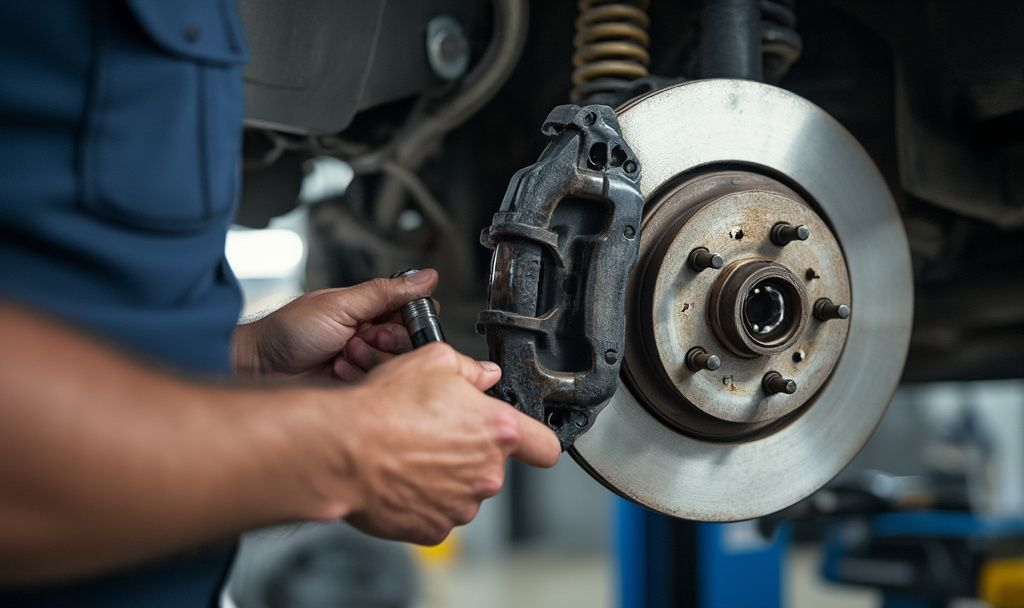Ensuring your brakes are in optimal condition is essential for your vehicle’s safety and performance. Regular maintenance and attention can prevent accidents and costly repairs. Learn how to keep your brakes in top form to drive with confidence and peace of mind.

Maintaining your car’s brakes in optimal condition is crucial for ensuring safety on the road. Proper brake maintenance not only prevents accidents but also extends the life of your vehicle’s braking system, making it a cost-effective practice in the long run. Regular upkeep can help identify potential issues early, allowing you to address them before they become major problems.
Understanding the importance of brake care can also relieve stress associated with vehicle safety, especially for those frequently transporting loved ones. Let’s explore simple steps to keep your brakes in top shape, how to recognize signs of wear and tear, and when to seek professional assistance.
Basic Brake Maintenance Tips
Keeping your brakes in optimal condition begins with basic maintenance tasks that you can perform at home. Ensure you check your brake fluid regularly, as it is vital for the hydraulic operation of the brakes. Low or dirty brake fluid can affect braking performance, so consider using recommended brake cleaners to help maintain clean components.
Regularly inspect your brake pads and rotors for signs of wear. Over time, brake pads will inevitably wear down, reducing their effectiveness. If you’re unsure about the condition of your brake pads, consult resources such as this guide on proper brake maintenance to learn more.
Recognizing Signs of Brake Wear
An essential part of maintaining your brakes is recognizing early warning signs of wear. Listen for unusual noises, such as squealing or grinding, which often indicate that your brake pads are worn out and need replacement. Vibrations or pulsations in the brake pedal can also signify warped rotors, needing immediate attention.
If your vehicle takes longer to stop or you notice a soft brake pedal, it might be time to consult a specialist. The increased interest in DIY brake maintenance highlight resources like the HT Saves guide on brake system maintenance, which provides detailed information on managing these issues.
Professional Brake Services
While many brake maintenance tasks can be handled at home, certain situations require the expertise of a professional. Professional services are equipped to perform comprehensive brake inspections, fluid exchanges, and offer complete brake system diagnostics. Regular professional checks can ensure that any hidden issues are addressed promptly.
For those unsure about specific maintenance intervals or procedures, resources like Tires Plus brake maintenance guide provide clarity and assistance on when to step up your brake care.
Tips for Extending Brake Life
To further extend the life of your brakes, consider adopting smoother driving habits. Avoid abrupt stops and rapid acceleration, as these can place additional stress on your brake system. It’s also beneficial to reduce the vehicle’s load to minimize strain while braking.
Regular tire checks also contribute to brake maintenance, as properly inflated and aligned tires ease the burden on your brakes. Consult the Car Geeks’ brake maintenance tips for more insights into how tire conditions affect brake performance.
Final Thoughts
Ultimately, keeping your brakes in optimal condition safeguards not just your safety but also that of others on the road. Regular maintenance, whether DIY or professional, is key to maintaining a reliable braking system. Stay informed and diligent about your brake care routine and enjoy the peace of mind that comes with knowing your vehicle is safe to drive.
For additional information on replacing brake pads and other DIY maintenance tips, explore discussions on platforms such as Auto and Car Talk.
FAQs
What are the basic steps for maintaining my car’s brakes?
Basic steps include checking brake fluid levels, inspecting brake pads and rotors for wear, and using recommended brake cleaners to maintain clean components.
How can I tell if my brake pads are worn out?
Listen for unusual noises like squealing or grinding, and check for any reduction in braking effectiveness, which are signs of worn brake pads.
Why does my brake pedal vibrate or pulsate?
A vibrating or pulsating brake pedal often indicates warped rotors, which should be checked by a professional immediately.
When should I seek professional brake service for my car?
Seek professional service if your vehicle takes longer to stop, or if your brake pedal feels soft, as these may indicate serious issues.
How can I extend the life of my brakes?
Adopt smoother driving habits, avoid abrupt stops, reduce vehicle load, and ensure tires are properly inflated and aligned to reduce brake strain.
